Are you dreaming of having a cat of your own but don’t yet know which feline friend would suit you best?
Would you prefer a chill cuddle-meister as your loyal home companion or are you looking for a curious adventurer who’ll never stop making you laugh? Just like us human beings, each cat is unique and different from all others. That doesn’t necessarily make the task of choosing a cat any easier, of course, but don’t worry, we’ve got something that might help: take our cat breed test and find out which feline temperament best suits your own character and lifestyle!
Whether it’s a furry whirlwind or a relaxed purring machine – after just a few questions, you’ll get a much better idea of which breed is best for you! So, as soon as you’re ready to let the cat out of the bag, read on …
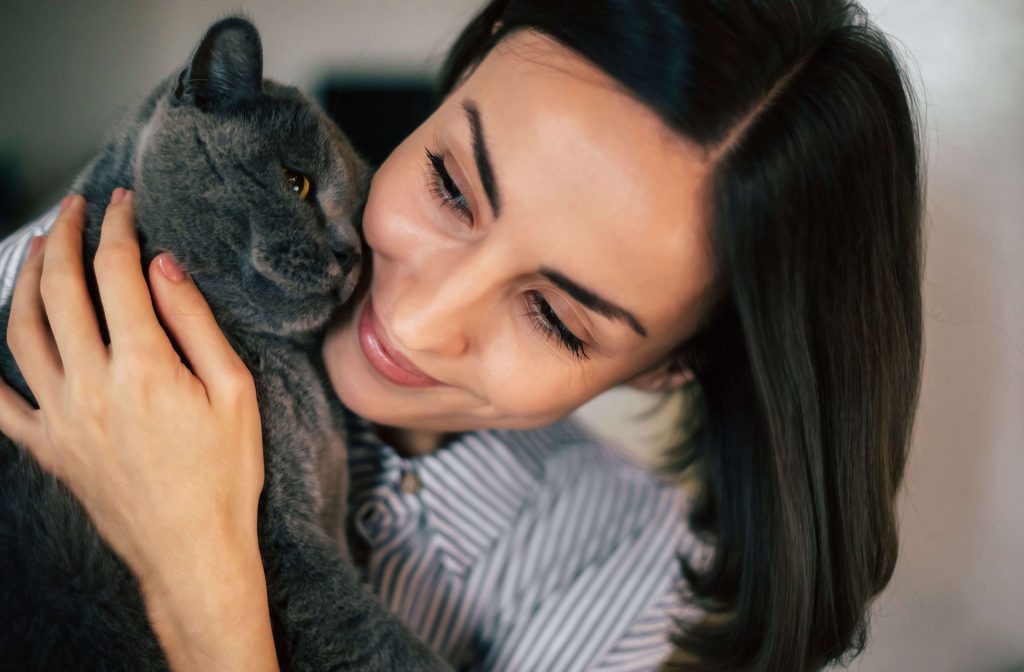
Finding the right cat breed

Are you looking to bring a feline friend into your home, but you’re not sure which one suits your temperament and lifestyle? There’s a wide choice of cats out there and each breed has its own characteristics and needs. Are you wondering whether to get an indoor cat or an outdoor cat? Or whether a fluffy, long-haired cat or an easy-care, shorthair cat would suit you better? Let us guide you step by step through the most important questions so that you can find exactly the right cat for you!
Indoor or outdoor cat?
Are you wondering whether your future cat should be a purely indoor cat or one that explores the outside world? Some cats feel perfectly at home indoors, for example the British Longhair and the Persian cat. Both of these breeds love a cosy environment and don’t necessarily need to go outside. If you’re looking for a cat that likes to be outside, a Norwegian Forest Cat would be a good choice. These beautiful and robust animals are filled with the spirit of adventure and discovery. If you want a mix of both types, a Maine Coone might be just the thing for you: these adaptable cats can do both indoor and outdoor living.
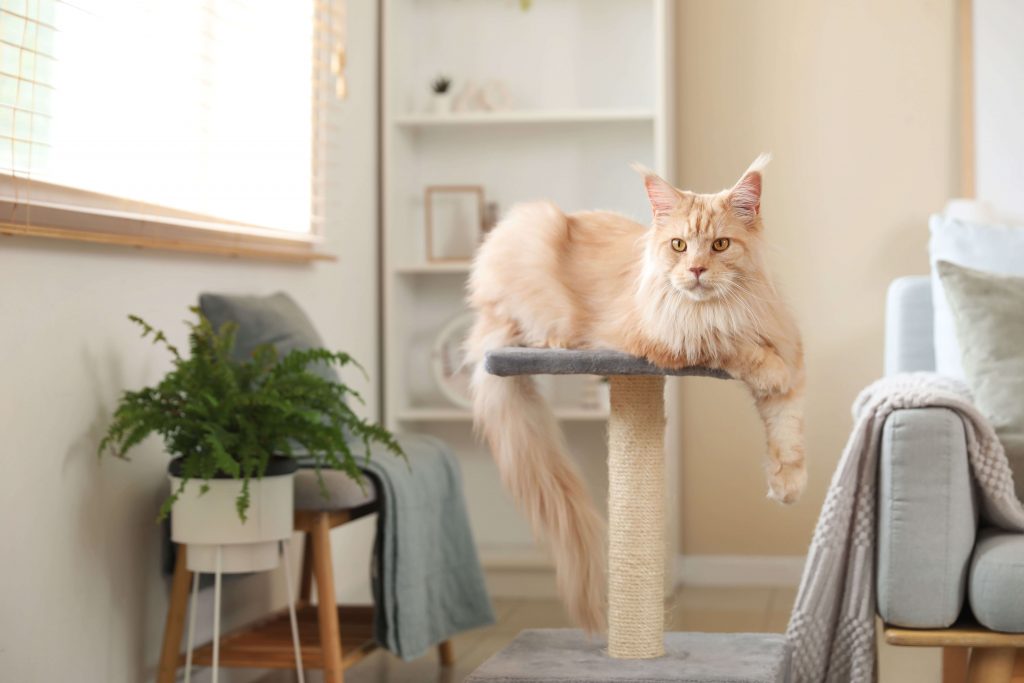
Do you have a cat allergy?
Do you love cats, but your allergy puts a spanner in the works of having your own feline friend at home? Fortunately for allergy sufferers, there are some cat breeds that produce fewer allergens! The Siberian cat is a particularly good choice for allergy sufferers. It’s considered a “hypoallergenic” cat because it produces less of the allergy-causing protein. The Devon Rex and Balinese are other breeds that allergy sufferers can get along with. Remember: every person’s allergy is different. Still, with these breed of cats, the chances of allergy sufferers enjoying some purring company are good!
Longhair or shorthair cat?
Are you more “team fluffy” or do you prefer not having to worry about all that fur? Long-haired cats like the Ragdoll and the Birman are particularly fluffy head-turners and true cuddle meisters! Don’t forget, though, that you’re going to have to brush them regularly to keep their fur coat in beautiful shape. If you don’t have much time for grooming, shorthair cats like the Russian Blue or the Abyssinian would be a better choice for you. They’re particularly easy to groom and shed less. Think about how much effort you want to put into taking care of them – there’s a suitable cat for every person’s unique level of grooming desire!
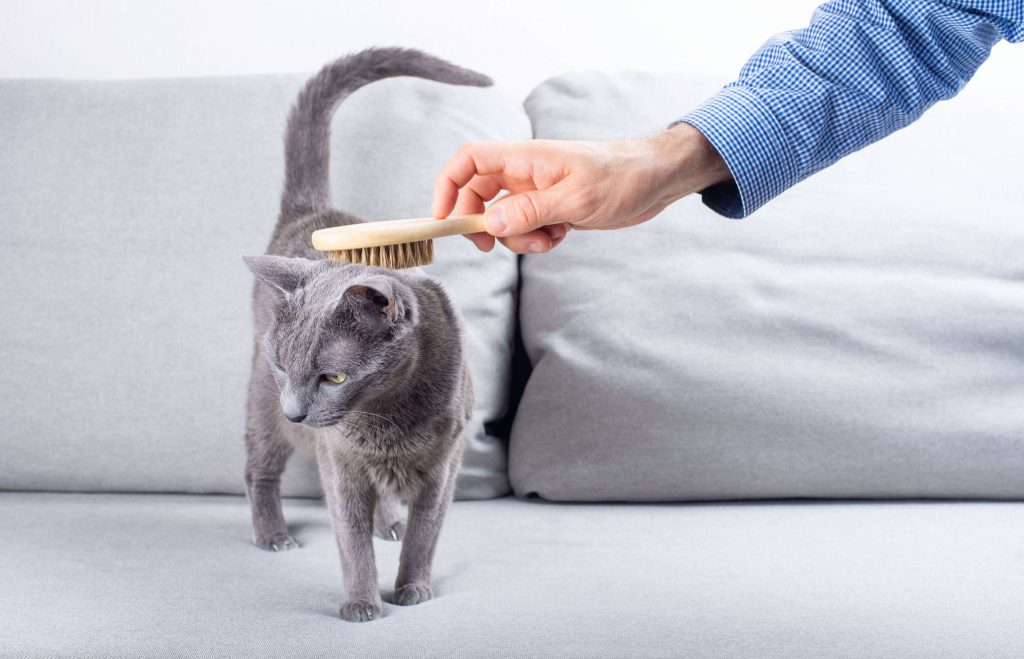
What should the cat look like?
Everyone has different tastes, and that goes for cats too! If you’re looking for an elegant beauty with a slender body and large ears, the Oriental Shorthair is the right breed for you. Would you prefer a cat with a strong, muscular body and eye-catching markings? If so, the Bengal cat will make your heart beat faster! Or are you more of a fan of fluffy cats with round eyes like the Exotic Shorthair?
Single-cat or multiple-cat household?
Would you prefer to have your cat live alone or with other cats? Some cat breeds, such as the Siamese, are very sociable and only really thrive in the company of others. They love having a furry friend or two by their side! Other cats, like the Carthusian, tend to enjoy their peace and quiet and are fine on their own as long as they get enough attention from you. Think about how much time you actually intend on spending with your furry friend and then consider whether you might want to welcome a second kitten into your home.
Do you own other pets?
Do you already have other animal flatmates living with you? Are you wondering which cat would suit them best? Some cat breeds are particularly compatible and get on well with other animals: the Tonkanese, for example, is very social and often fits harmoniously into a mixed pack. The American Shorthair is also known for its calm nature and will accept dogs and other pets without any problem. There are several other great breeds out there that are wonderfully suited to life in a pet family!
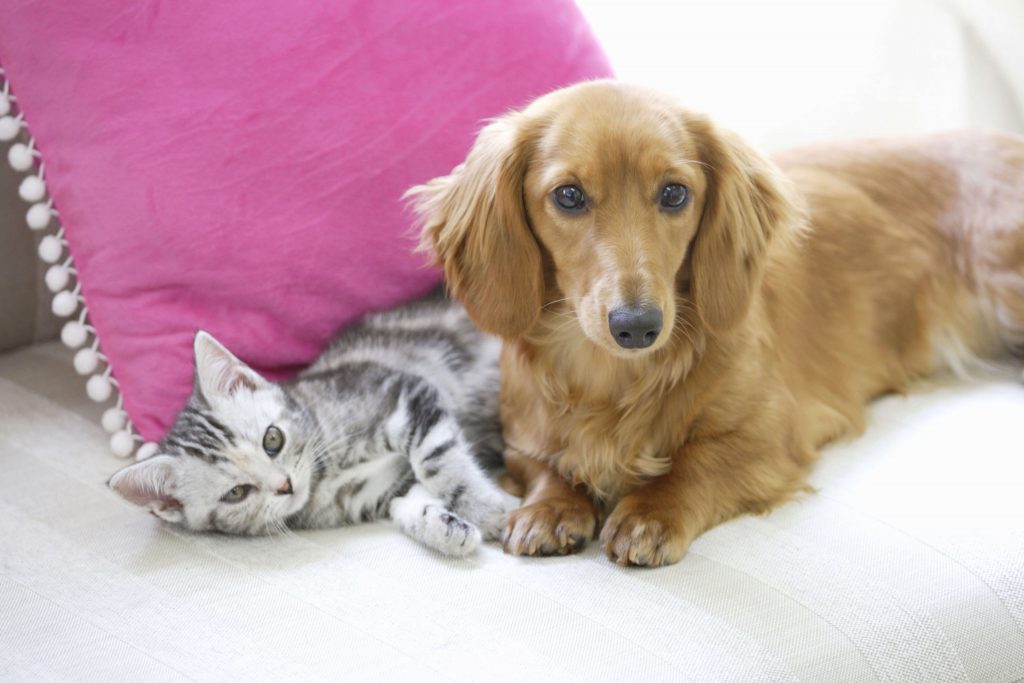
Is the cat growing up in a family with young children?
When you have a lively family that includes young children, you might be wondering whether there’s a cat breed for you in the first place. Some cats are actually very patient, and some even love lots of hustle and bustle! The affectionate RagaMuffin usually gets on well with children and stays relaxed even in hectic moments. The charming European Shorthair is also known for its friendly nature and adaptability: a perfect family member!
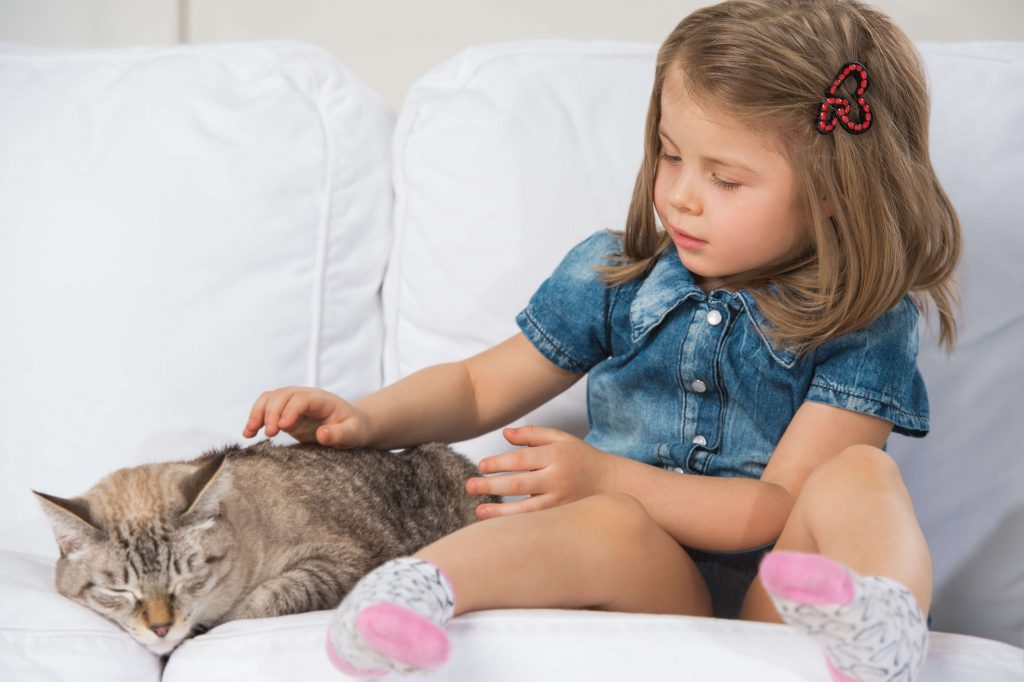
Do you have any prior experience with cats?
If you don’t have any prior experience with cats, a relatively calm and uncomplicated breed such as the Manx might suit you well. They’re very adaptable and easy to care for. However, if you’re already familiar with cats and you’re looking for a somewhat more demanding breed, the Ocicat could be of interest to you: they’re very active cats and love interacting with others. Whether you’re a beginner or an experienced cat lover, as soon as you familiarise yourself with the different breeds, you’re guaranteed to find the ideal four-pawed companion!
What kind of character would you like your cat to have?
What character traits would you like your future cat to have? Every cat is unique and has its own personality – and that can be quite exciting! Would you like an affectionate, cuddly cat that follows you wherever you go? Or would you prefer a talkative cat that likes to tell you what it thinks? Perhaps you prefer a more playful cat or you’re looking for an active adventurer? In the following sections, we’ll help you find the cat that perfectly matches your preferences:
Should your new cat be super affectionate?
Are you interested in a cat that enjoys having you around and constantly shows you how much they like you? If so, then you’d do well to get yourself a breed known for being super affectionate. For example, the Ragdoll and the Burmese love to be with their human owners and enjoy every hug. These cuddly fur balls will follow you wherever you go and always love being close to you when you’re relaxing on the sofa!
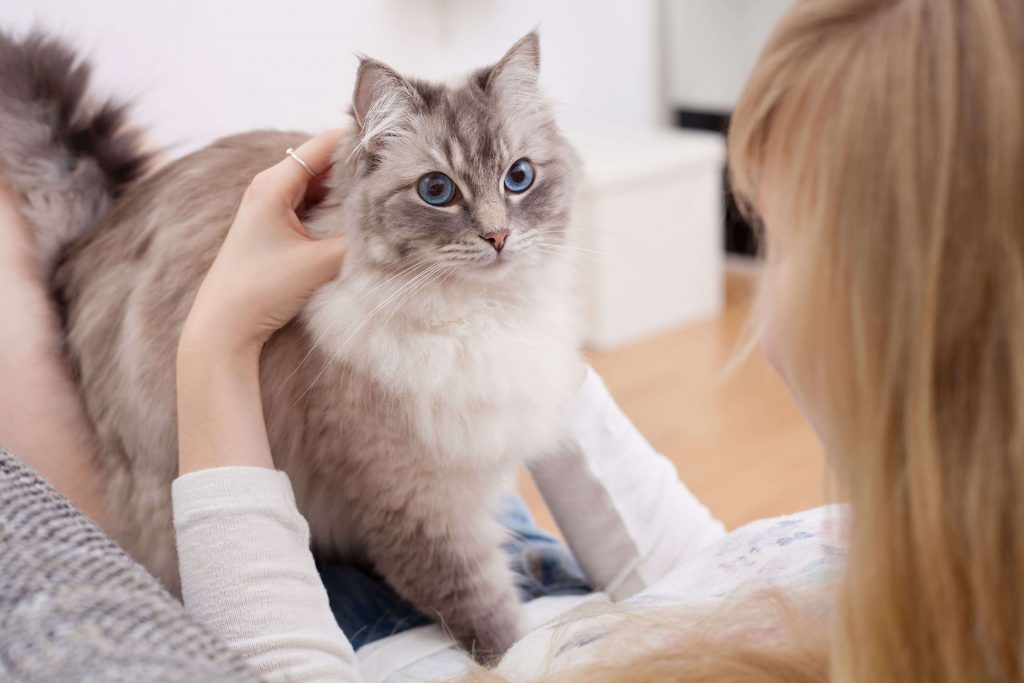
Should your new cat be talkative?
Are you looking for an outgoing and enthusiastic cat who loves to “communicate”? Then a talkative cat breed is perfect for you! Cats like the Siamese and the Oriental Shorthair are known for being very communicative and use different sounds to tell you what they’re thinking. Whether it’s a greeting or an invitation to cuddle, these furry friends will always have something to say …
Should your new cat be playful?
Are you someone who loves playing with cats and keeping them occupied? In that case, a particularly playful breed might suit you well. How about an Abyssinian or a Bengal cat? hese wonderful furry tigers are known for their playfulness and love any kind of action! Whether it’s a hunting game or an interactive toy, they’ll always be enthusiastic!
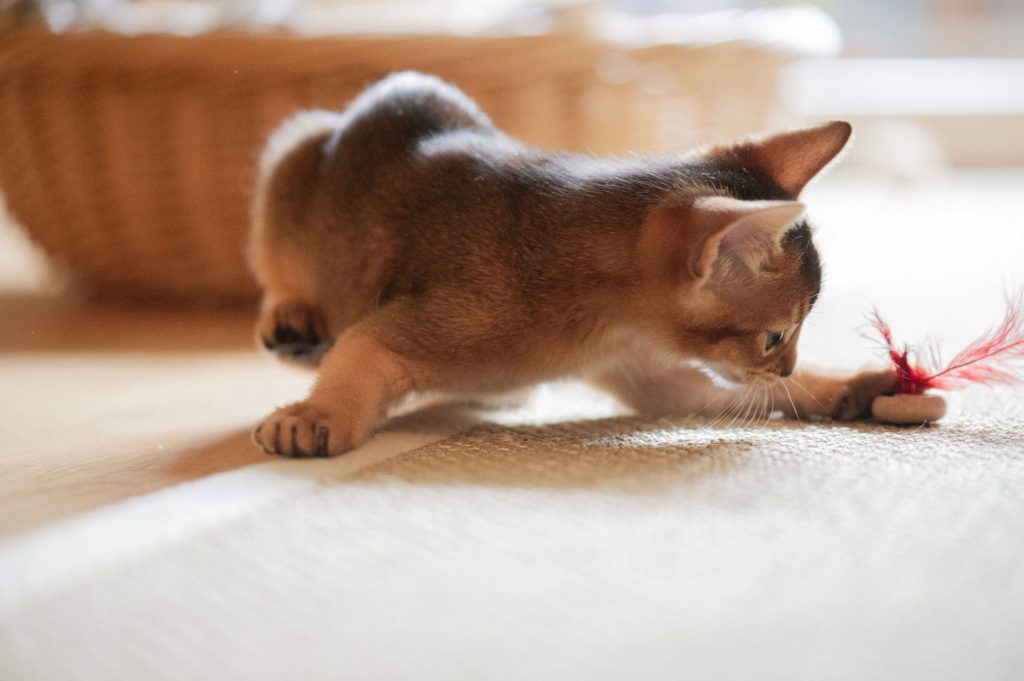
Should your new cat be active?
If you’re looking for an active cat that’s full of energy and always on the move, a breed like the Savannah or the Ocicat is perfect for you. These cats are known for exploring every corner of their homes and also for perpetually climbing, jumping and creating new games. If you can offer them a suitable home and a lifestyle that’s appropriate to their species, these lively bundles of energy are the right choice for you!
Additional decisions to make before choosing a cat
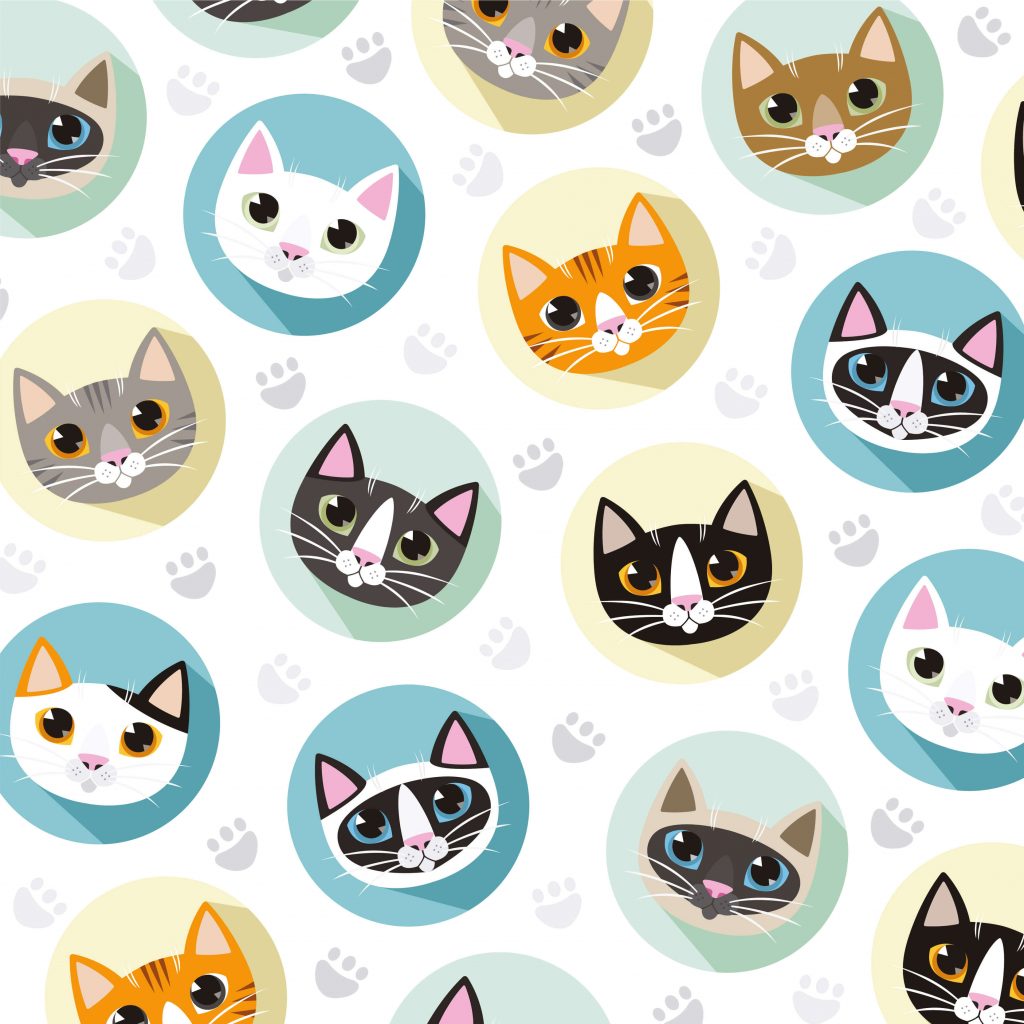
So you’re interested in bringing a new cat into your home, but which cat really suits you and your lifestyle? Choosing the right cat is a very special affair, and there are plenty of other factors to consider in addition to the breed. These include things like age, gender and parentage. Are you trying to figure out whether you’re best suited to having a lively kitten or a calm older male cat? Or are you wondering whether it makes a difference if you get a male or a female cat? And then there’s the question of whether you should adopt a cat or buy one.
Young kitten or older cat?
Are you considering whether you’re best suited to having a kitten or an older cat? Kittens are cute, playful and full of energy, but they’re also going to need a lot of patience and plenty of attention if they’re going to learn all the important things they need to learn when they’re young. Older cats, on the other hand, are often calmer, have already developed their personality and are the perfect complement to a relaxed home. In other words, think in advance about how much time and patience you want to invest in your new cat.
Male or female cat?
Are you wondering whether a male or a female cat would suit you better? Male cats are often a little more relaxed and tend to be very cuddly. Female cats can be a little more independent but they’re just as affectionate and amiable. Each cat will have its own wonderful character, but sometimes these small differences can help you make the right choice.
Adopt or buy a cat?
Which is better: adopting or buying a cat? Both have advantages and disadvantages. Ultimately, it’s a question of conscience. When you adopt a cat from an animal shelter, you’re giving them a new home. For older cats who haven’t enjoyed a real home for a very long time, this might be their last chance. You’re also helping to lift the burden carried by animal shelters, because they’re responsible for looking after far too many cats all year round! When buying a cat, you can decide in favour of a kitten and/or a particular breed. No matter what choice you make, it’s important that you research your chosen breeder before you make your purchase.
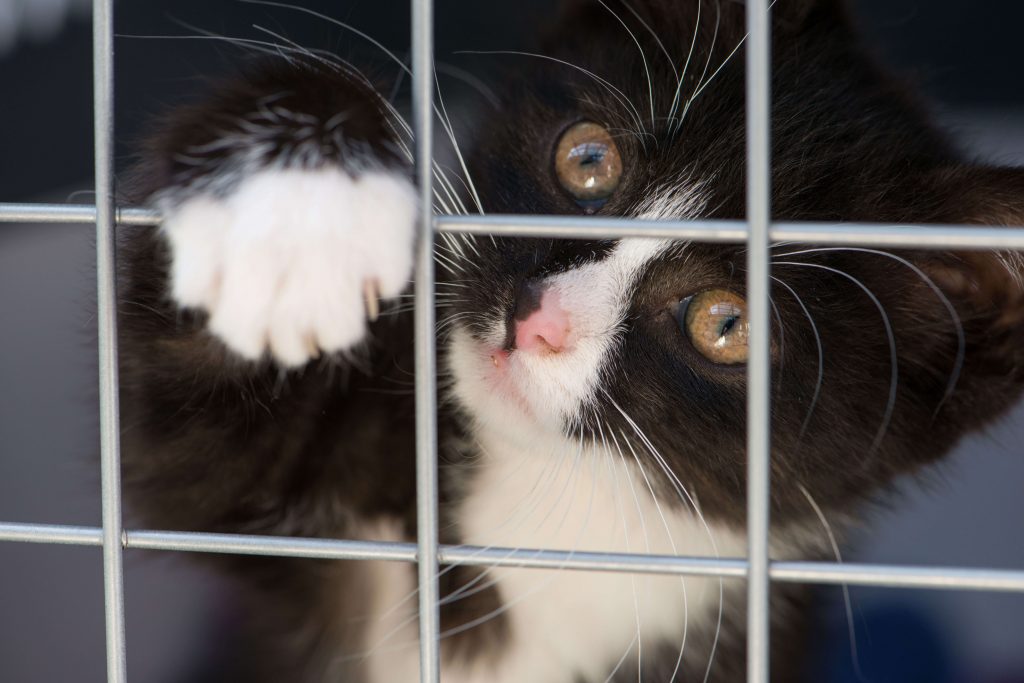
Things to consider before acquiring a cat

Are you thinking about getting a cat and bringing it home? That’s a wonderful idea! But before you decide which cat to get, there are a few things to consider. For example, cats will no doubt bring you considerable joy, but caring for them also involves many other responsibilities. Do you have enough space for them to feel comfortable? Are you prepared to set aside time for grooming and play? And what will you do when the next holiday comes? In the following sections, we’ll take a look at these important questions so that you’re perfectly prepared for life with a new furry friend!
Do you have enough space in your home for a cat?
Have you ever wondered whether your home has enough space for a cat? Fortunately, most cats don’t need a palace. What they definitely do need are places they can retreat to and areas where they can play and climb. They’re also going to need a window seat for watching things going on around them and a cat-proof balcony to satisfy their curiosity. Some cats are perfectly happy to be indoor cats, but only in a flat that’s furnished appropriately and offers enough variety. It’s a good idea to think in advance about how to create a little adventure land for your new four-legged flatmate…
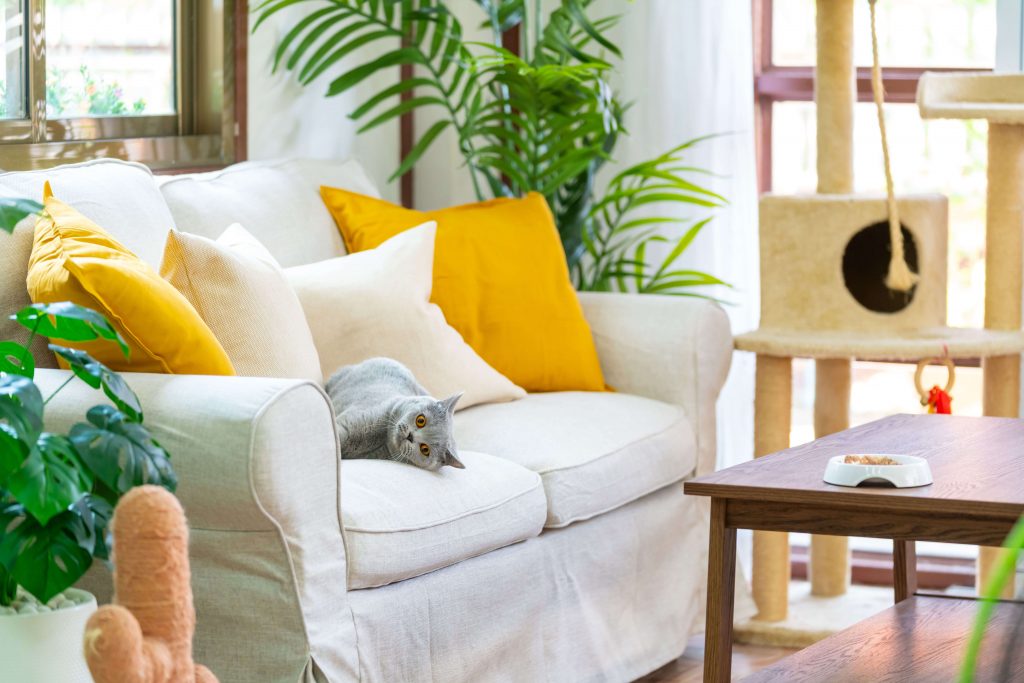
Do you have enough time for a cat?
Are you thinking about getting a cat, but you already know you’re going to be busy at work all day most days? In that case, the question arises as to whether you’re going to have enough time for a furry friend. Cats are wonderful, independent creatures, but they nevertheless need a lot of attention: playing, cuddling, feeding and grooming are all part of everyday life with a furry friend. Some cat breeds are particularly affectionate and need company. So if you already know you’re going to be away from home a lot, one solution is to get a cat duo so that your fur ball won’t constantly feel lonely.
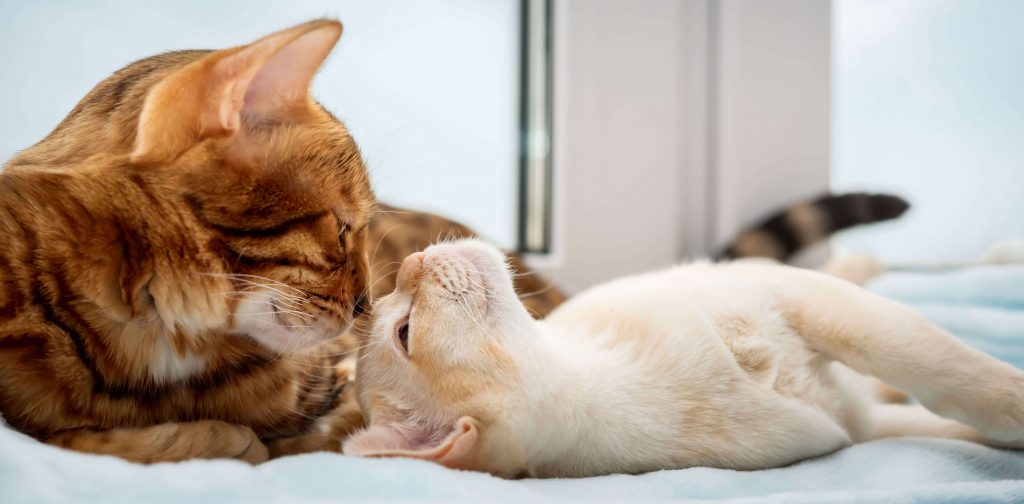
What happens when you want to go on holiday?
Have you thought about what to do with your cat when you go on holiday? If given the choice, your cat will always prefer to stay in its familiar surroundings. That’s why a cat sitter who looks after them at home is often the best solution when you’re away on holiday. For example, you can ask a friend, neighbour or professional cat sitter if they can feed your cat, play with it and keep it company while you’re gone. Another option is to find a good cat boarding centre that could take care of your cat. If there’s no other option and if yours is a really cool cat that’s up for anything, you can also take it on holiday with you.
Bottom line

The decision to bring a cat into your life is a wonderful thing – but it’s also worth thinking about carefully beforehand. After all, a cat is a living creature that will change your life forever. There’s so much to consider before going ahead with the decision to get a cat. For example, you should think about which cat breed suits you best, how much time and space you can give it and how you’re going to plan your holidays with it in mind. All of these considerations will help ensure that you’re both happy. If you’re prepared to cater to the needs of your future furry friend, nothing can stand in the way of a long and loving friendship. We hope you enjoy your search for the right four-pawed companion!
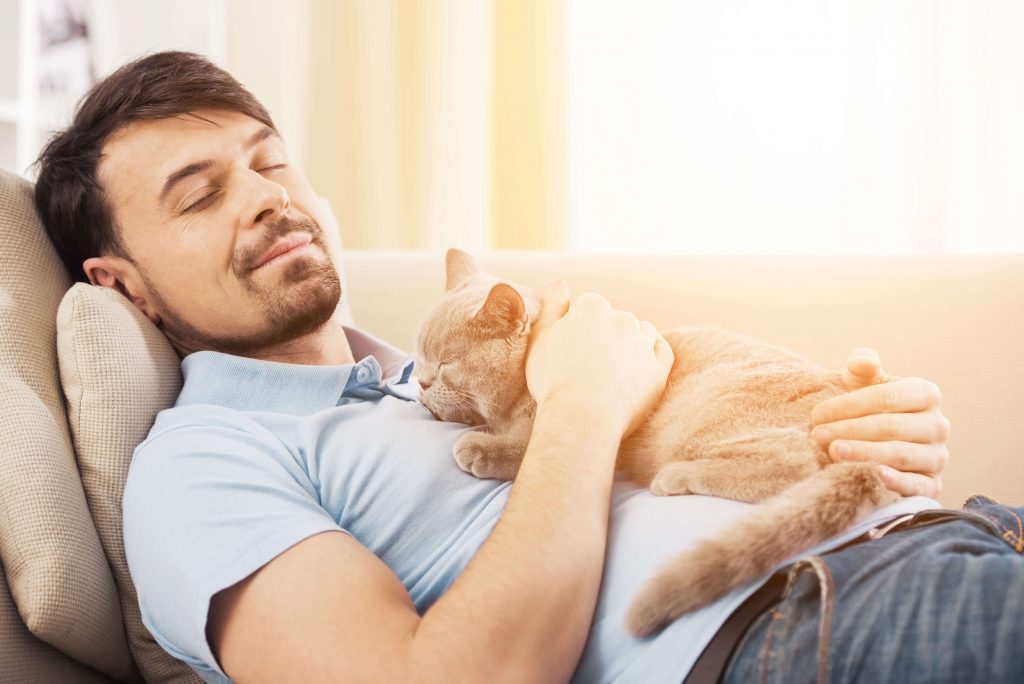
The Cat’s Best guide to cat breeds

Do you already have a particular cat breed in mind and want to know more about it? We invite you to consult the Cat’s Best guide to cat breeds where you’ll find everything your feline-friendly heart desires! Whether you’ve got an energetic adventurer or a cuddly fur ball at home – this guide will help you determine which breed is best suited to your lifestyle. Consult the Cat’s Best cat guide for exciting information, tips and tricks for a harmonious life together with your feline companion.
Frequently asked questions – Which cat is right for me?
Unfortunately, no cat breed is completely allergy-free. However, some breeds are considered more hypoallergenic than others and are thus tolerated better by allergy sufferers: the Siberian cat, the Balinese cat and the Devon Rex produce less of the allergy-causing protein Fel d 1 and are often better tolerated. Don’t forget that allergy sufferers can have different reactions to allergens, so prior contact with the cat is a good way to find out exactly how you react.
Shorthair cats like the European Shorthair, the American Shorthair and the Burmilla are low-maintenance cats: Their short fur requires less grooming and they’re less prone to shedding. They’re also often uncomplicated and adaptable in their nature, which makes them ideal companions for people who don’t have time for elaborate grooming rituals.
The largest and most impressive cat breed is the Maine Coon. These beautiful cats can weigh up to 10 kg and reach a length of up to one metre including their tail! Despite their impressive size, Maine Coons are known for their friendly and social nature and regarded as “gentle giants”. A medium-length coat and muscular build give these furry friends their wild, raccoon-like appearance.
Breeds like the Ragdoll, the British Shorthair and the Maine Coon are ideal for families with young children. The Ragdoll loves to cuddle and is known for its incredibly gentle character; the British Shorthair is very patient and calm; and the Maine Coon is playful and robust. These breeds are generally tolerant and adaptable, which makes it easy for them to live in a home with young children.
The adorable Singapura is the smallest cat breed and remains quite petite with a weight of 2-3 kg. The Cornish Rex also stays small and light, often under 4 kg. Both breeds are known for having a charming character: the Singapura is lively and curious, while the Cornish Rex is playful and people-oriented. Both breeds are ideal for cat lovers who want a small, agile cat!
There’s no cat breed that’s completely hairless, but some have significantly less hair: the Sphynx is almost hairless, and the Devon Rex and the Cornish Rex also have special coat structures with little hair. These breeds are ideal for people who want to have less hair in the house or who prefer a slightly different look than the “average cat”.
If you’re looking for a cat you can keep indoors, we recommend the British Shorthair, the Ragdoll and the Birman cat. The British Shorthair is a calm and adaptable companion; the Ragdoll loves to be close and enjoys spending time with its human owners; and the Birman cat is friendly and even-tempered. These breeds are totally fine with not being able to go outdoors, as long as they’re given sufficient activity and attention at home.
A cat needs about one to two hours of active attention every day, including feeding, playing and grooming. Although cats are more independent than dogs, they still need plenty of attention, especially social breeds like the Siamese and the Ragdoll. In addition to playing and cuddling, regular grooming is also important; this depends more or less on the breed. And of course you shouldn’t forget to put time aside for visits to the vet and cleaning the litter tray.
If you’re looking for a house cat that will feel comfortable being alone at home, a good choice would be an independent and calm breed such as the British Shorthair, the Russian Blue or the Exotic Shorthair. These cats do well on their own as long as they have plenty to do and a cosy place to retreat to. They like attention, but they’re not too clingy, which makes them ideal if you only have a little time to spend together during the day.
Breeds like the Norwegian Forest Cat, , the Maine Coon and the European Shorthair are particularly suitable for outdoor living. They have a beautiful, robust coat and are naturally curious and active, which makes them ideal explorers. These cats love to roam around to their heart’s content and explore their surroundings. They’re eager to live out their natural instincts, but they also feel at home indoors if they have enough to do.
The latest “AGILA”¹figures show that the British Shorthair and European Shorthair are still the most popular cat breeds in Germany. Those two are followed by the beautiful Maine Coon. These breeds are especially beloved for their pleasant and people-friendly nature. New to the top 5 is the exotic Bengal cat, which is popular because of its wild appearance and active character.
Source: © 2024 AGILA Haustierversicherung AG: “Die beliebtesten Katzenrassen 2023 in Deutschland”, online at Deutschlands beliebteste Katzenrassen im Jahr 2023 – AGILA, accessed on 28 Oct. 2024
Some cat breeds have a very special relationship to water: for example, the Maine Coon is known for its love of playing in water or at least exploring it. The Turkish Van has also been known to enjoy splashing around in water. The same goes for the Bengal cat, which loves water and enjoys drinking and playing in it. These breeds find it fascinating to bathe and splash around. Still, a love of water is rare for most cats.
If you’re just starting out with cats, the best choice for you is an uncomplicated and easy-to-care-for breed: the British Shorthair, for example, is very calm, friendly and adaptable. The Ragdoll is known for being particularly gentle and people-orientated. The European Shorthair is also considered robust and undemanding. These breeds generally get on well with new owners and don’t require extensive grooming.
Playful cat breeds such as the Abyssinian and the Bengal cat are known for having an active and curious character. The Abyssinian loves to climb and discover new things, while the Bengal cat enjoys wild games and movements. The Siamese cat also shows a lot of energy and likes to bond with its human owners through interactive play. These breeds bring a lot of enthusiasm and dynamism to everyday life and enrich the people they come into contact with in a very special way!
Affectionate cat breeds such as the Ragdoll and the Siamese cat are very special furry friends. They love to be close to their human owners at all times and often follow them around the home. Burmese cats are also known for being affectionate and enjoying extensive cuddling. These breeds seek close contact with their human owners and feel particularly comfortable in their company. They’re ideal companions for anyone who wants to develop a close bond with their cuddly tiger.
If you’d like to find out more about your cat, the first thing to do is find out which breed it is: look for typical characteristics, such as coat length, markings, body build and eye shape. There are some characteristics that are only found in certain breeds. If you want to know even more, you can also contact a vet or a professional breeder. Another option is to have your cat take a DNA test to determine its genetic background and identify particular breed characteristics.
